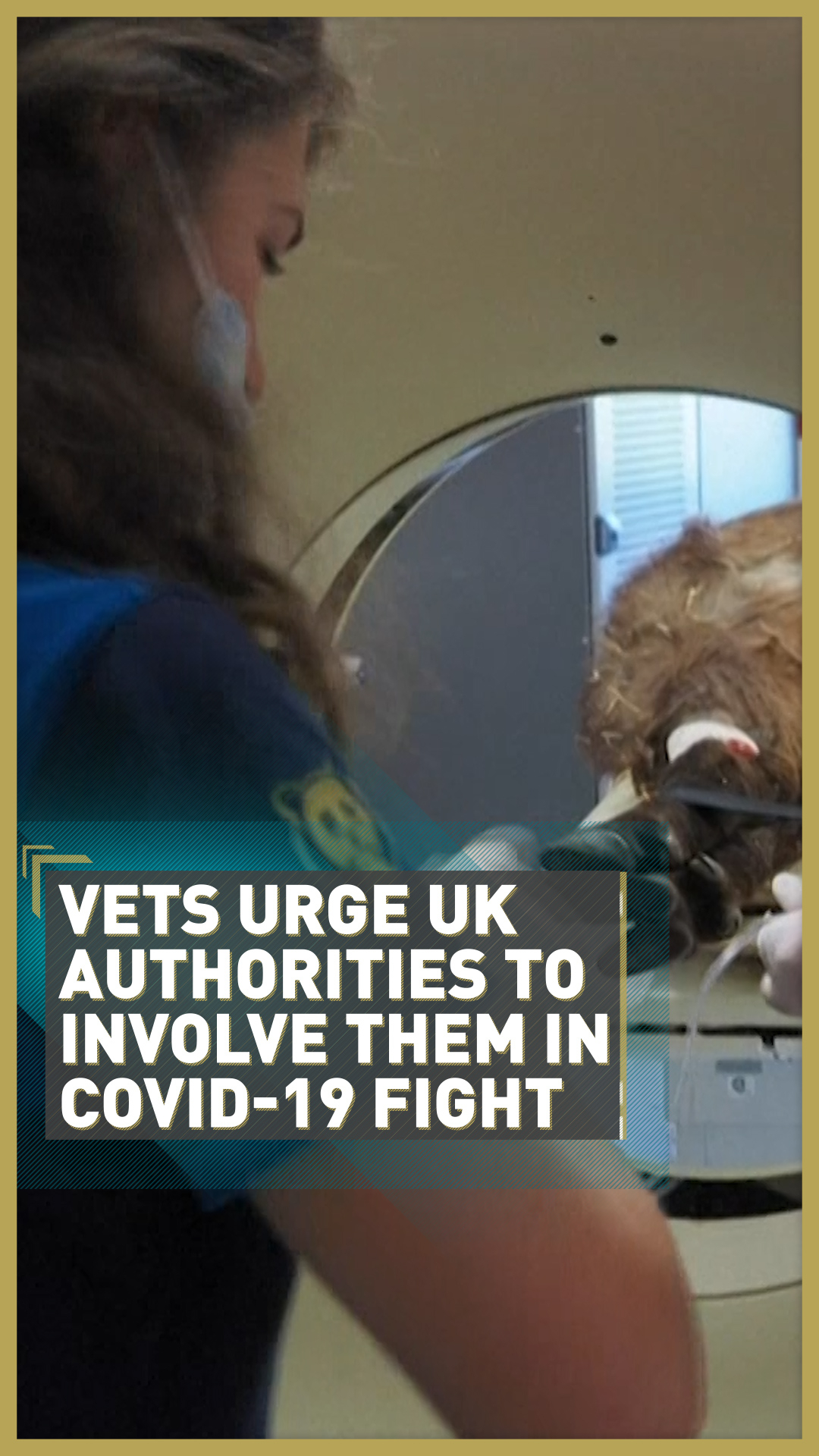01:51

The British government should seek the help of veterinarians for an effective and sustainable strategy to manage COVID-19, given their expertise and understanding of animal coronaviruses, two leading vets have claimed.
In a paper published in the Vet Record this week, Joe Brownlie, emeritus professor of veterinary pathology at the Royal Veterinary College and Dick Sibley, director and principal of West Ridge Veterinary Practice in Devon, stressed the importance of involving their colleagues in the fight against the pandemic.
"Considering their long-term experience gained with animal coronaviruses, vets are in a unique position to help forge a better understanding of the origin and spread of SARS-CoV-2 and guide future research towards the development of effective vaccines and antiviral drugs," they said in the opinion piece.
Brownlie and Sibley rue the fact that the healthcare sector historically focus more on therapeutics, diagnostics, technologies and bigger hospitals to treat the sick rather than the preventive medicine which is the cornerstone of veterinary science.
With the world having to accept that the virus is here to stay, the duo support an effective long-term plan that includes immunity development, either by managed exposure or vaccination and simultaneously catering for the elderly who may require intensive treatment and support.

Experts say COVID-19 is here to stay and long-term plans should be put in place to counter the virus. /Ronny Hartmann/AFP
Experts say COVID-19 is here to stay and long-term plans should be put in place to counter the virus. /Ronny Hartmann/AFP
The proposal would mean releasing 60 percent of the resilient population from the lockdown so that they build up immunity and kickstart the economy while the vulnerable 40 percent are shielded from the infection.
"If this was an animal disease outbreak, with similar infectivity, economic connotations and variable clinical outcomes, vets would apply the four pillars of disease control to manage it: biosecurity, biocontainment, surveillance and resilience," the article said.
Biosecurity relates to measures that prevent an infection from entering a population. Biocontainment manages the risks of the disease spreading within a population. Surveillance involves testing and resilience only comes from managed exposure.
In terms of biosecurity against COVID-19, the UK's response "has been lamentable". So has biocontainment, the op-ed stated. On testing, they said it would require skilful interpretation and strategic implementation to be meaningful.
"The current surveillance strategies for COVID-19 appear confused, inappropriate, and undeliverable," Brownlie and Sibley suggested.

The UK has recorded thousands of deaths and infections since coronavirus hit Europe. /Ben Stansall/AFP
The UK has recorded thousands of deaths and infections since coronavirus hit Europe. /Ben Stansall/AFP
Privacy laws that hinder the use of identification cards, and a political aversion to national databases will blunt efforts to establish robust systems for surveillance and disease categorization.
The pair emphasized vets understand very well the concept of resilience and its centrality in managing long-term diseases.
"If there is anything fortunate in this ghastly experience, it is that most of the vulnerable can be readily identified, protected, and kept out of the intensive care units; they are generally not the economic generators within the population," they wrote.
"The young, fit, slim, non-smokers could be left to get on with creating the wealth that we are going to need to secure our futures, instead of being locked away waiting for the inevitable."
The two vets said that the ongoing approach to manage the pandemic has more to do with delaying deaths than saving lives.
Remember to sign up to Global Business Daily here to get our top headlines direct to your inbox every weekday.